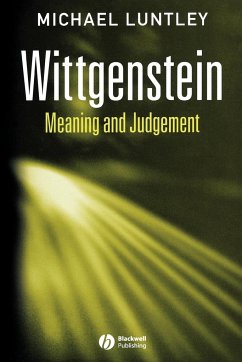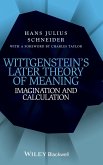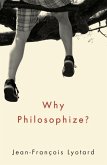In this important study, Michael Luntley offers a compelling reading of Wittgenstein's account of meaning and intentionality, based upon a unifying theme in the early and later philosophies. Rejecting readings which see a complete break between the Philosophical Investigations and the Tractatus, as well as views of Wittgenstein's mature work which either lament or champion his anti-philosophical 'quietism', Luntley argues that Wittgenstein's abiding concern was to show that the conditions for the possibility of intentionality consist not in a body of theoretical knowledge, but in perceptual knowledge, in our active capacity to 'see things aright'.
"The largely moribund state of current Wittgenstein scholarshipought to be radically changed for the better by this conspicuouslyinteresting and insightful book." Alan Thomas, PhilosophicalBooks
"Michael Luntley offers a striking interpretation ofWittgenstein's philosophy, one aimed at displaying and defendingWittgenstein's positive contribution in the later work. The resultis a theory of the conditions for the possibility ofintentionality, a theory that identifies the subject as agent inthe world with that condition. Powerfully argued, this interestingand original treatment of Wittgenstein's later philosophy raises achallenge for all of us who find a social dimension inWittgenstein's account of intentionality and normativity."Meredith Williams, The Johns Hopkins University
"Luntley provides an intriguing discussion of Wittgenstein'searly work, arbitrating judiciously between realist readings thatemphasise the place of reference in its account of language, andnon-realist readings that emphasise inference." DanielWhiting, University of Reading,Philosophical Investigations 28/4, October 2005
"Michael Luntley offers a striking interpretation ofWittgenstein's philosophy, one aimed at displaying and defendingWittgenstein's positive contribution in the later work. The resultis a theory of the conditions for the possibility ofintentionality, a theory that identifies the subject as agent inthe world with that condition. Powerfully argued, this interestingand original treatment of Wittgenstein's later philosophy raises achallenge for all of us who find a social dimension inWittgenstein's account of intentionality and normativity."Meredith Williams, The Johns Hopkins University
"Luntley provides an intriguing discussion of Wittgenstein'searly work, arbitrating judiciously between realist readings thatemphasise the place of reference in its account of language, andnon-realist readings that emphasise inference." DanielWhiting, University of Reading,Philosophical Investigations 28/4, October 2005








